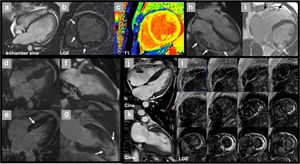The American Cancer Society (ACS) has released grim predictions for colorectal cancer, estimating there will be around 155,000 new cases and 52,900 deaths this year. This type of cancer, one of the most prevalent globally, occurs when abnormal cells grow on the inner lining of the colon or rectum. The ACS states men have roughly a 1 in 24 lifetime risk of developing this disease, compared to 1 in 26 for women. Encouragingly, adults at average risk are urged to start screenings at age 45; those with heightened risk should begin sooner and undergo more frequent testing.
Dr. Cedrek McFadden, a colorectal surgeon and medical adviser to the Colorectal Cancer Alliance, identified key factors contributing to increased risk of this cancer. Family history plays a major role—having blood relatives who have had colorectal cancer can double your risk. Certain inherited genetic mutations, such as Lynch syndrome, are significant culprits behind approximately 3% to 5% of colon cancer cases.
Age also dramatically influences risk levels. While colorectal cancer can affect individuals of any age, the chances skyrocket past the age of 50, with increasing rates observable among younger adults. Alarmingly, cases among people 54 or younger jumped from 11% to 20% between 1995 and 2019, indicating this trend cannot be ignored.
Dietary choices are another component, with high consumption of red and processed meats being linked to higher cancer risk. Dr. McFadden also stresses the importance of including fiber-rich fruits, vegetables, and whole grains to lower one's chances of developing the disease. Indeed, processed meats have been labeled as carcinogenic by the World Health Organization as early as 2015.
Behavioral aspects like smoking, heavy alcohol use, and physical inactivity contribute to risk as well, alongside obesity, which fosters chronic inflammation and disrupts normal cell behavior. Certain chronic conditions, particularly inflammatory bowel diseases such as Crohn's or ulcerative colitis, also heighten the risk of developing colorectal cancer.
Shifting our focus to oral cancer, recent findings from the Gujarat Cancer Research Institute indicate concerning trends among women previously considered at low risk. The oral cancer cases observed among women surged from just 379 cases recorded in 2005 to approximately 941 cases projected by 2024—a startling 148% increase. The number of cases reached 1,000 annually by 2019. Dr. Shashank Pandya from GCRI attributes this increase to rising tobacco consumption, noting the growing trend of women adopting smoking habits, especially in urban areas.
Dr. Kaustubh Patel, noted head and neck onco-surgeon, emphasized the urgent need for broader awareness of cause and preventive measures pertaining to these cancers, as early intervention can prove highly effective.
Meanwhile, advancements are being made within breast cancer treatment protocols. The FDA recently approved trastuzumab deruxtecan for use as a companion diagnostic tool for patients diagnosed with hormone receptor-positive, HER2-ultralow metastatic breast cancer. Matt Sause of Roche Diagnostics highlighted this approval as promising progress, noting the necessity for reliable diagnostic options as the incidence of metastatic breast cancer grows, particularly among younger demographics.
The FDA label expansion allows healthcare providers to identify which patients could benefit from T-DXd treatment following the expansion of existing therapies for patients who have advanced to at least one endocrine therapy without success.
This move was bolstered by compelling results from the phase 3 DESTINY-Breast06 trial, where T-DXd demonstrated superior progression-free survival rates compared to traditional chemotherapy.
While there is optimism, research underscoring the connection between cardiovascular disease (CVD) and breast cancer raises flags for concern as well. A recent study revealed older breast cancer patients may face heightened risk for both diseases, particularly among those diagnosed with late-stage breast cancer. The compelling nature of these findings may help inform how healthcare providers approach patient treatment overall.
Despite breast cancer typically receiving more attention, CVD claims one out of five female deaths annually, indicating the urgent need for education and awareness surrounding cardiovascular health, as they dramatically impact breast cancer outcomes.
The JAMA Network Open study also highlighted women's cardiovascular health challenges, underscoring the importance of diverse participation within clinical trials to account for variances in risk factors relating to gender, ethnicity, and health profiles.
To improve outcomes for patients battling both conditions, there's clearly more work required. Integrative healthcare approaches can help to create holistic strategies for combating cancer and heart disease. Adopting healthy behavioral strategies can potentially lower risks for both diseases and address the underlying conditions, growing the importance of awareness moving forward.
Overall, the rising cases and challenges presented by these types of cancer, both through advancements and grim realities, highlight the necessity for heightened awareness, proactive treatment methodologies, and the importance of supporting gender-based research and education. By doing so, we pave the way for more effective prevention and treatment strategies for cancer moving forward.



